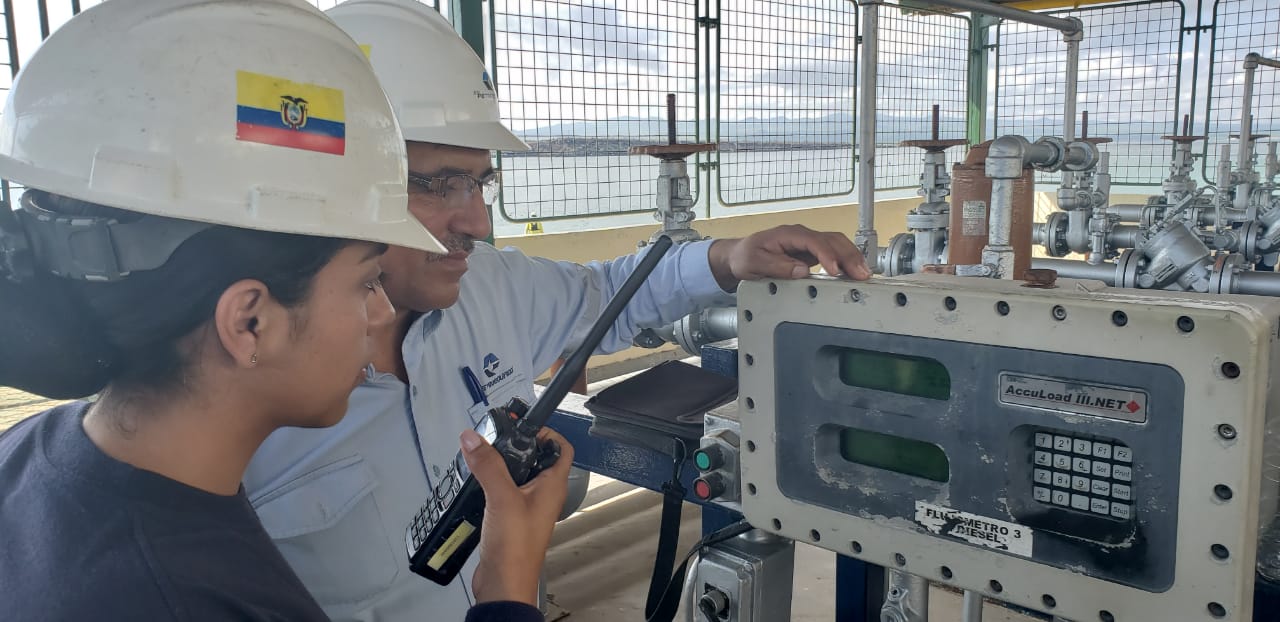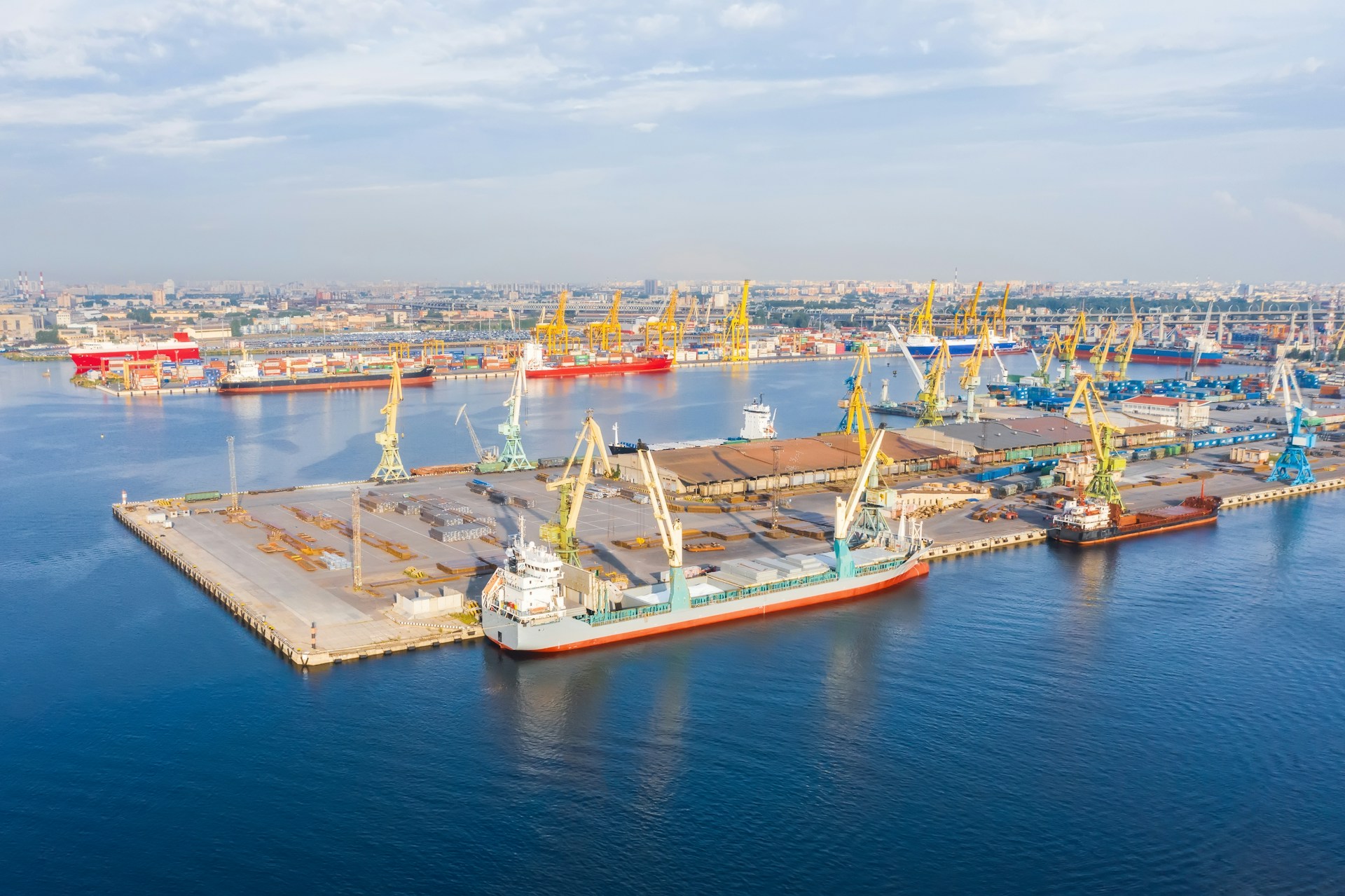The first Monday of every November is Job Action Day. This year that day fell on November 7th. The whole point of Job Action Day is to encourage and empower people to explore their career options and find a job that they love, whether that’s a career at sea or a career on land - or even a career in the air.
What happens on Job Action Day?
The day aims to connect experts in various fields, career guidance counselors, companies and even bloggers with people who are looking for a job or a change of career.
No matter whether you’re currently employed, about to graduate, or are looking to return to the workplace, Job Action Day is a day to feel like you can step out of your daily routine and take a look at what really fulfills you when it comes to work.
It’s an opportunity to examine your career and honestly ask yourself if you’re really doing what you love.
Is it time for you to make a plan of action?
The whole point of Job Action Day is to step back and reassess what you are doing with your life - and you might find that you are completely happy with what you do for a living.
Perhaps you’re in a maritime academy and training to be a Deck Cadet, maybe you’re working your way up the maritime career ladder and are keen to earn your next set of stripes to become a Second Officer.
Read more: What is Job Action Day & Why Should Maritime People Care?
Or you might even have been working in seafarer jobs for years and are thinking about finding a maritime job ashore.
Either way, having an action plan to map out your maritime career pathway won’t hurt.

That way you’ll be more organized and can keep your eyes on the prize - whatever it might be.
What’s so great about Job Action Day?
Although it’s a relatively lesser known day, once you’ve found out about it, hopefully it will give you a reason to focus on where you see yourself in five, ten or even twenty years time.
We know we all need to earn a living, but the point of Job Action Day is to inspire us all to believe that we can achieve anything and go for it!
It’s here to remind us that looking for a new job doesn’t have to be stressful and time consuming - it can even be fun. Yes, really!
Should YOU pursue a career at sea?
If you’ve ever wondered if a career at sea is for you, you’ve come to the right blog.
The first thing you probably need to think about is whether or not you have the right mental and physical attributes.
Working at sea on a cargo or container ship, on a bulk carrier, on a chemical tanker or even on a cruise ship is not for those who need their home comforts.
Working in a seafarer job means spending months at a time away from home, often without a means of calling family or friends, and without an internet connection.
Read more: How to Cope with Working Away from Home in Jobs at Sea
While many jobs at sea are physically demanding and require you to be on your feet for much of the day, working shifts, and performing manual labor, the need to be mentally resilient is an absolute must.

If you think you’ve got what it takes, your next step is to explore some of the different jobs at sea and see which area you’d like to work in.
What are the different departments on a ship?
Merchant vessels are divided into departments and the work in each can be very different. For example:
Deck Department
This department is managed by the Captain (known as the Master on a merchant vessel) and is staffed by Officers and deck crew. Between them, they are responsible for the safe running, operation and navigation of the ship.
Officers work from the bridge, where the vessel is steered from and the navigational tools and equipment are kept, while crew will work on deck and are responsible for maintaining the deck and equipment and assisting with the loading and unloading of cargo.
Jobs in the Deck Department on a ship include: Chief Officer, Second Officer, Bosun, Able Seaman and Deck Cadet.
Engine Department
The Engine Department is managed by the Chief Engineer, who reports directly to the Master.
The department is responsible for maintaining, repairing and operating the vessel’s engineer, generators, boilers, pumps and other machinery, equipment and systems that keep the ship running.
Because there is so much equipment and so many systems on a merchant ship, there are different types of jobs in this department. Some personnel will deal with machinery such as the engines - engineers, while some will work with electrical systems or electronic equipment.

Jobs in the Engine Department include Second Engineer, Electro-Technical Officer, Electrician and entry level cargo ship jobs such as a Wiper (who helps to keep things clean), Electrical Cadets and Engine Cadets.
Steward Department
The Steward Department is mostly centered around the kitchen - known on a ship as the galley. It is responsible for cooking and serving food to the Officers and crew and keeping the crew mess (the area where the seafarers sit to eat and relax) clean and tidy.
On a cruise ship, this department will be staffed by a huge number of people, from the Executive Chef, Pastry Chefs and 3rd Cook to Chief Stewards and Stewardesses.
On a merchant vessel, however, the Steward Department will probably only be staffed by the Cook and a Messman - another entry level ship job, whose responsibility it is to help the Cook, wash dishes, serve food, and clean the tables.
Read more: How to Kickstart Your Career in Maritime Jobs
Interested in finding out more about a career at sea?
Keep in mind that the entry into a maritime career might be different depending on where you live. Generally, if you have no experience, it is a good idea to search for maritime academies, colleges or universities in your country.
You could then start your merchant navy career as a Deck Officer-Cadet on an industry sponsored foundation degree, higher national diploma or degree. Many of these courses also usually include practical training onboard a vessel.
Once your cadetship is completed you can then begin to look for work on a cargo or container ship, or another type of vessel.
Or if you already have, for example, a degree in engineering, you could take the next step of attending a maritime college to qualify for your STCW and other basic examinations which will allow you to work on a ship. Once completed, you could try applying for Junior Engineer jobs on a ship.

Job Action Day: Are you going to take action to work at sea?
Working in seafarer jobs has many benefits: Great opportunity for career advancement, the chance to travel and meet new people, being able to experience nature at its most wild and wonderful, and of course to earn money while you’re doing all of this.
Are you thinking of returning to your sea career?
Maybe you’re already a qualified seaman or seawoman who has taken a break from life at sea but you’re thinking about returning to work.
If so, take a look at Martide’s maritime job vacancies and see if there’s anything that interests you.
Applying for jobs with Martide couldn’t be easier either. In fact, it’s as easy as 1, 2, 3:
- Create a Martide account
- Enter your details and upload your seafarer and travel documents
- Search our seafarer jobs and apply for any you like the look of
It’s time to take action…it’s time to find your next job at sea!
And don’t forget to download our seafarer job app for iOS or Android from the Apple App Store or from Google Play either!

Eve Church
Eve is Martide's content writer, publishing regular posts on everything from our maritime recruitment and crew planning software to life at sea. Eve has been writing professionally for more than two decades, crafting everything from SEO-focused blog posts and website landing pages to magazine articles and corporate whitepapers.
UK

is the only site for maritime jobs




